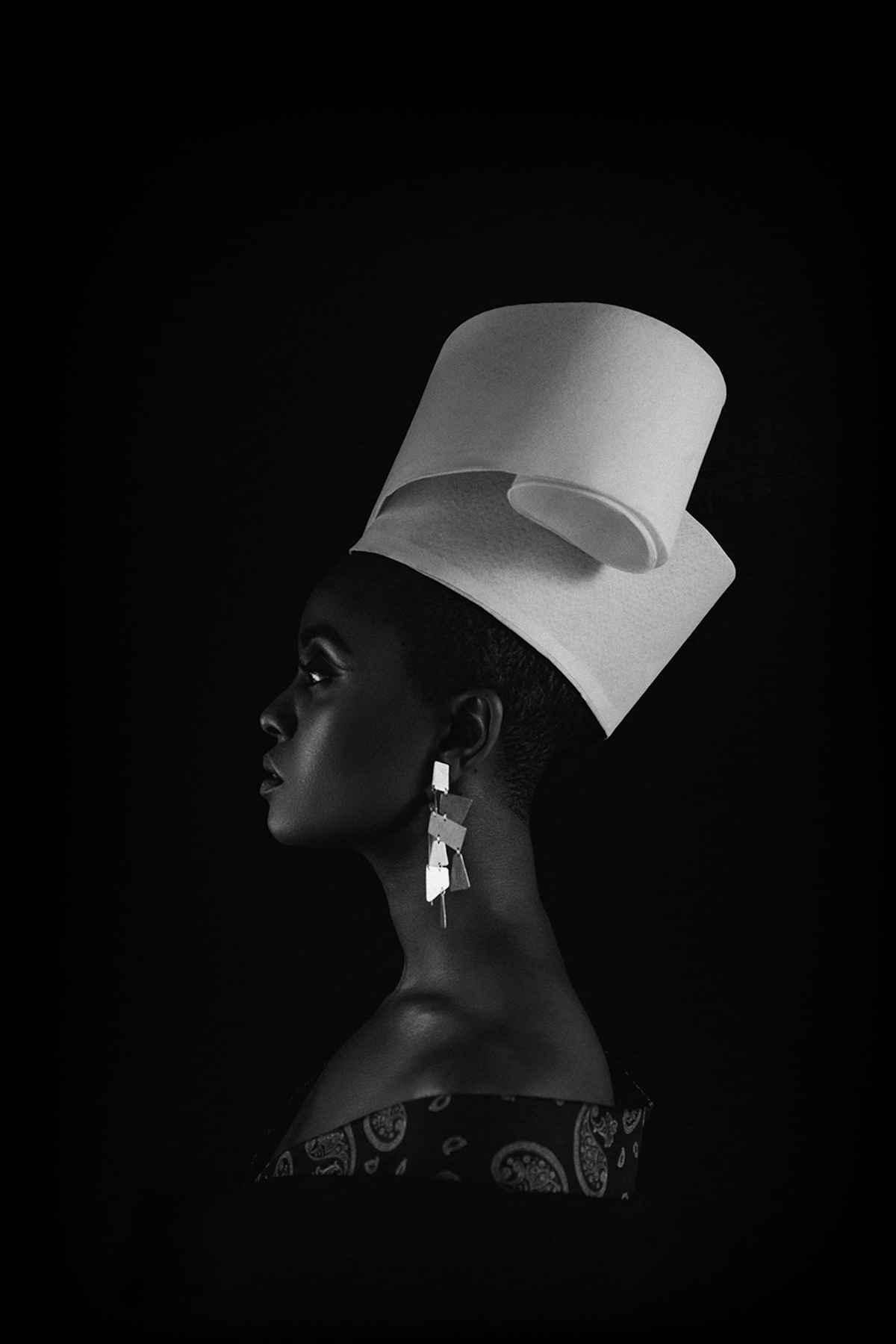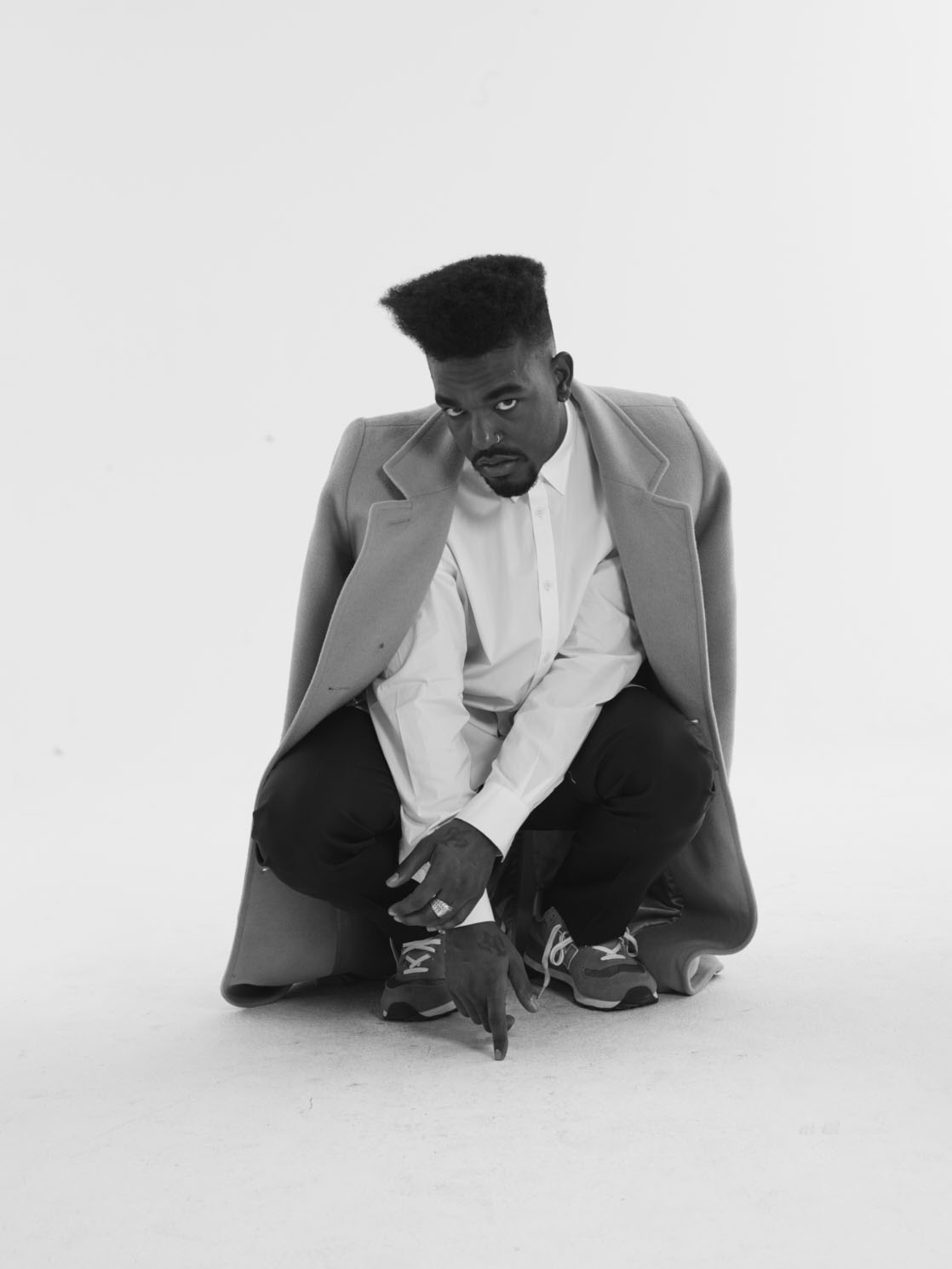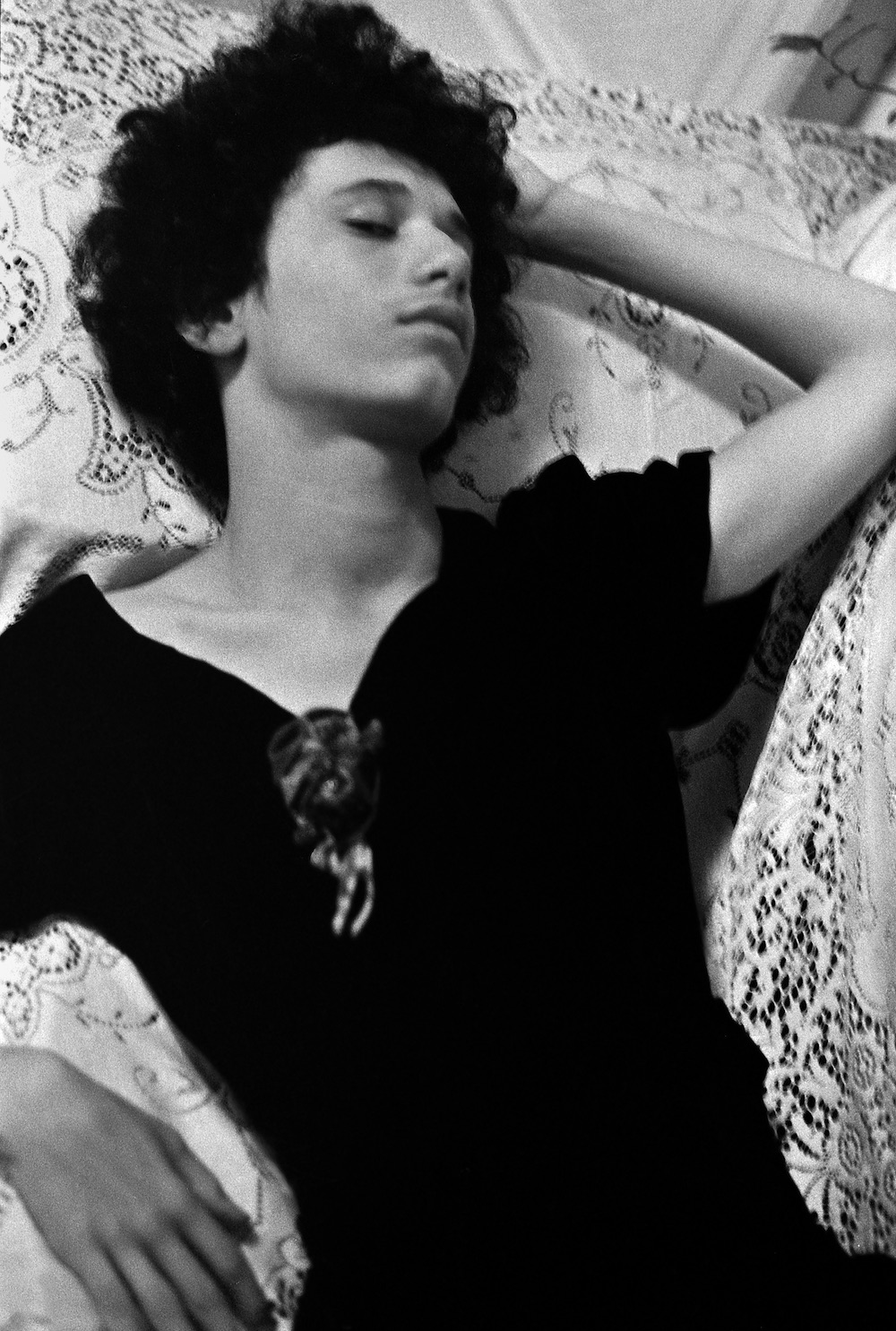Namir Fearce, who goes by Blu Bone, describes his sound as “Hi-Cotton” a phrase that in the deep southern roots of Mississippi means “of the best quality.” The hi-Cotton waves could certainly be felt on his debut EP, Into Nebula, which was released at the end of 2017. On it, the bisexual artist raps and sings about everything from sex work to the Deep South to heartbreak.
The seven-track tape samples Donny Hathaway, Masters at Work, Kerri Chandler, and Will Downing and touches on issues and themes salient to the black gay and bisexual experiences. Its mesmerizing instrumentals come directly from a studious mélange of classic vogue beats and ’90s R&B. Blu’s flow, word play, and masterful lyricism are clearly inspired by veteran MCs like Andre 3000 but also by new voices like Azealia Banks.
“I cook house, blues, hip hop, and techno to make a stew that offers escape from this white supremacist confine—much the way my granmamas soul food does. At least that’s my goal—to create other worlds.”
The 19-year-old is a student of music. He’s spent years cultivating his sound and studying vocal greats like Brandy, Rachelle Ferrell, Erykah Badu, and Sylvester, creating a sound that’s quirky, intricate, and subversive. With Into Nebula Blu manages to do something completely unique and transformative, rapping about sexuality in a way that feels radical, raunchy, and authentically liberating.
Traveling to Chicago’s West Side to photograph and interview Blu, who is currently studying film and sculpture at The University of Illinois at Chicago, felt like a truly rewarding journey. We spent four days shooting, talking, eating, dancing, watching films, sharing history, and building community.
Gioncarlo Valentine: How did you get started rapping and when did you know you’d gotten good?
Blu Bone: Both of my parents are writers so I was always around poetry, it was never something too far from my reach. I started as a child painting and drawing and for the most part, I paid my writing no mind. I started making music when my mom won an iPad in a random competition and gave it to me. I was in the 8th grade and I immediately started fucking around on Garage Band. In one day I made a song. It was about Nat Turner burning down plantations ‘n’ choppin up white girls ‘n’ shit. I showed it to my mom and she gave me life. With that little Amen I continued to make music. In high school I was in my little bubble, it got progressively more queer (more honest). Years later I’m a Garage Band icon.
GV: Do you find it difficult to split yourself between the artistic genres that you love: sculpture, painting, rapping, singing, and making experimental films?
BB: It never really feels hard to do as an artist. I love all of my practices and see them as one. I feel like I travel between them and weave them together often. The real struggle has been figuring out how to brand it all. How can I make people understand what I do? But I stopped really giving a fuck about that too. I record a song, I direct and shoot a clip for it, in my clip there’s a sculpture or painting that I made. I give myself my credit and push on. You either get it or you don’t. Prince played all his instruments, it’s the gemini way.
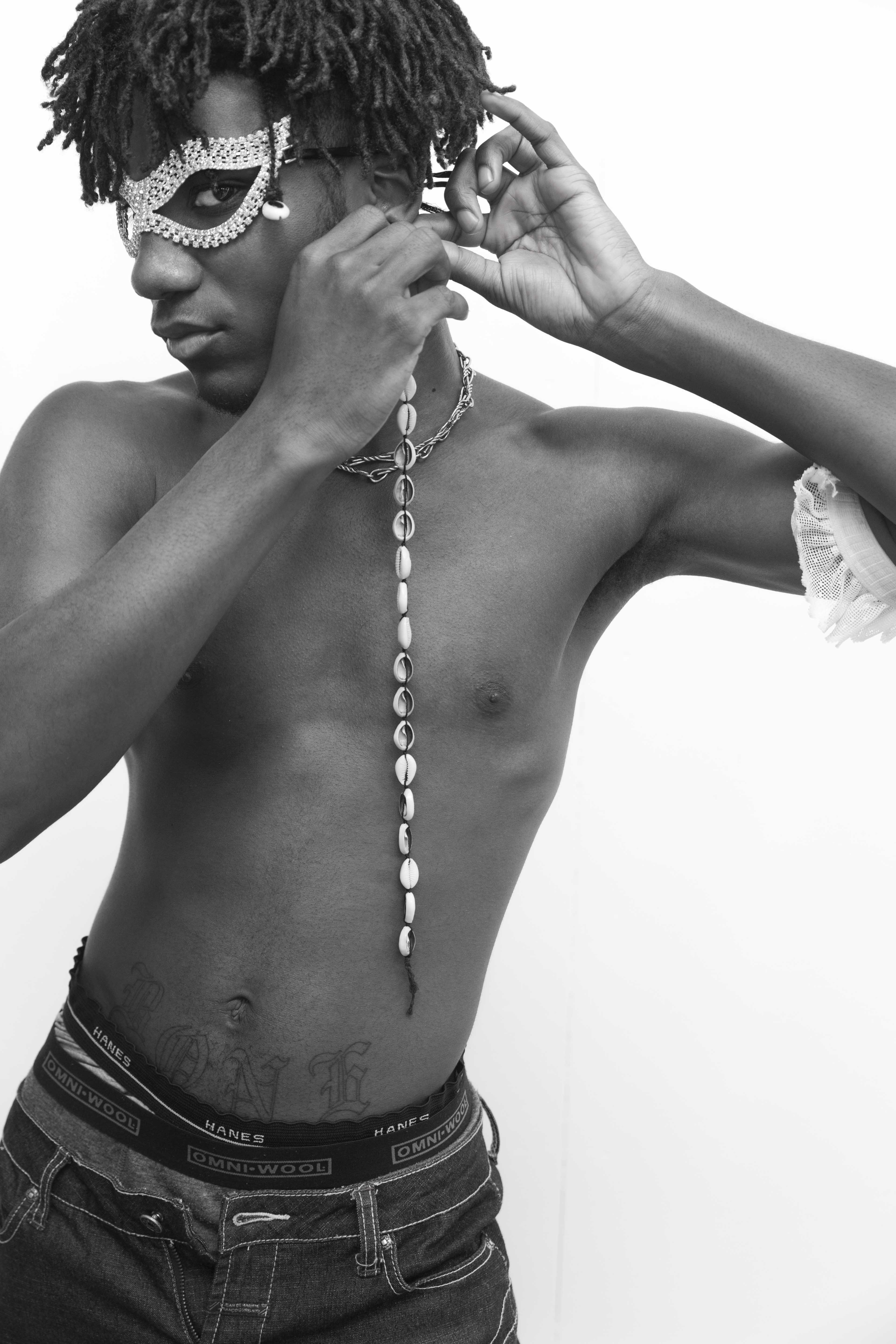
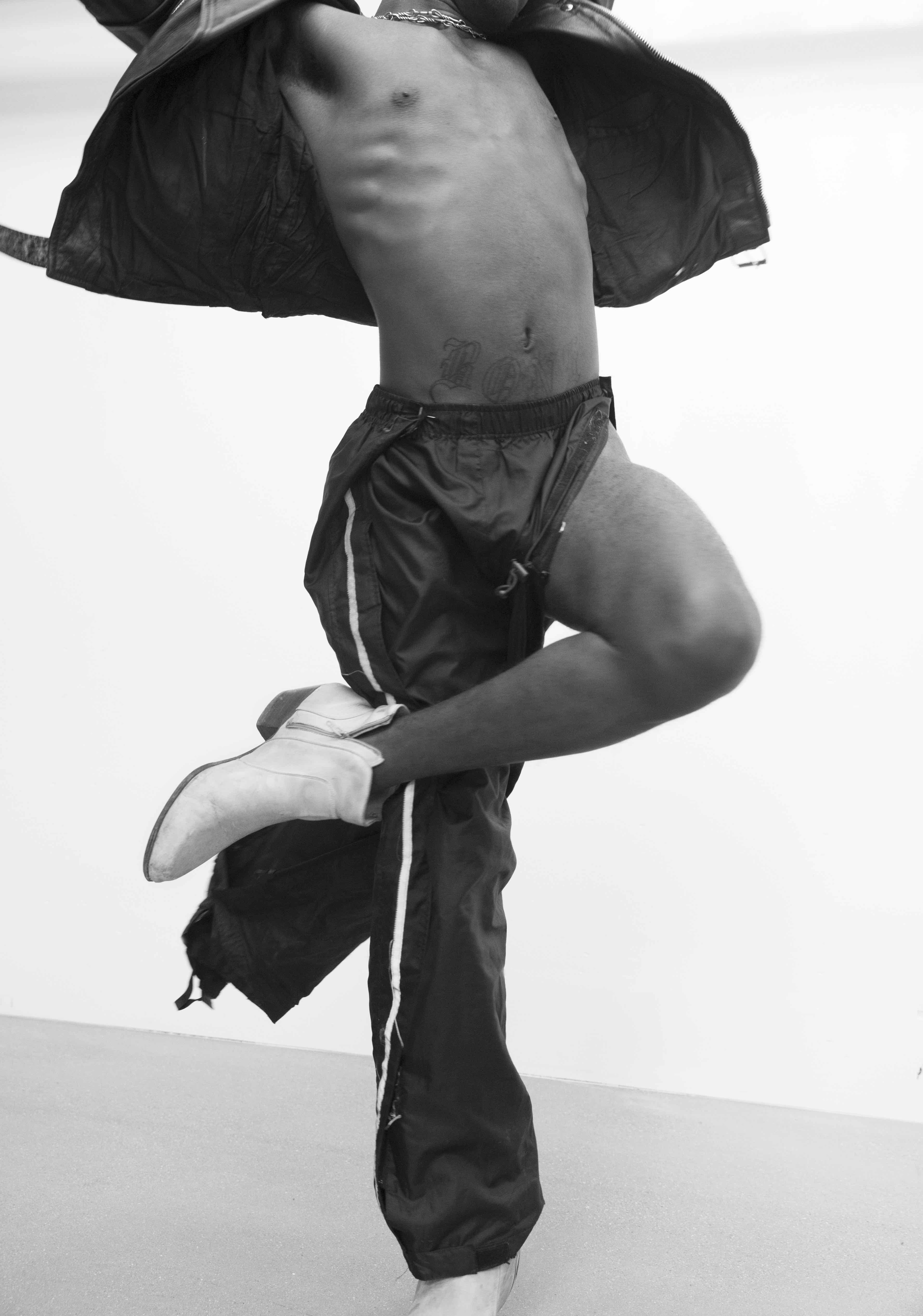
GV: How important has community been to your process of creating and releasing music?
BB: To be honest community has not necessarily been a large part of my music making process. I make music in isolation, in my room, alone. Sending it off directly from me to the world. I’m working on that though. I’m finding the beauty in collaboration. At first, making ‘queer’ music, I felt there was no way or place for the communities I was a part of to engage it. I was actually afraid for my music and its safety for a long time, it seemed there was no room for me or it; but I’ve had some recent experiences with sharing my music with loved ones and community that have been affirming.
GV: What are some of the challenges that you face as an independent musician?
BB: Being an independent artist is … frustrating. Having to depend on a limited platform and consistently making work to no avail is enough to make anyone want to be done. I, however have committed to being diligent in my production, this is all that gets me through. What would help me? Support of press—these music sites and bloggers really doing their damn jobs of finding and exalting the sounds of now that are of substance, process, and love. I’m not the only artist out there that’s being short-handed. I really want better for everyone doing this shit with passion, dedication and thought.
GV: In an ideal world, what musicians would you like to collaborate with?
BB: SoftXShug, my best internet friend who’s been around since I started making music. We’ve grown alongside each other. I just wrapped a collab with my great friend Mvk3r on “Blu Valentine.” She did the production and I’ve never been prouder. I think a Bbymutha moment would be fun! I love her and all she represents.
Dream collabs? I really want a Will Downing collab, a DMX collab, Meshell Ndegeocello … I mean I know it can’t happen but Aaliyah (R.I.P.), and of course Brandy.
GV: What role does the South play in your music?
BB: I’m the first generation born out of the South. My family stayed in Mississippi past the great migration and came up to Minnesota when my great grandmother became ill (for better health care and air). Even though I was raised in the North, the voices, food, songs, blues, and curses most familiar to me are Mississippi to the bone. My jives, my humor, the quick wits, sounds, and alliteration are some of the ways I directly locate the South in my music. I’m always in communication with my granmamas and ancestors when creating, and that be where they from. It informs my taste and I think it differentiates me, sonically, from a lot of other house music and R&B makers. I’m very proud to be of Mississippi blood—Natchez to be specific—very proud. Strong, hardy, resilient ass folks.
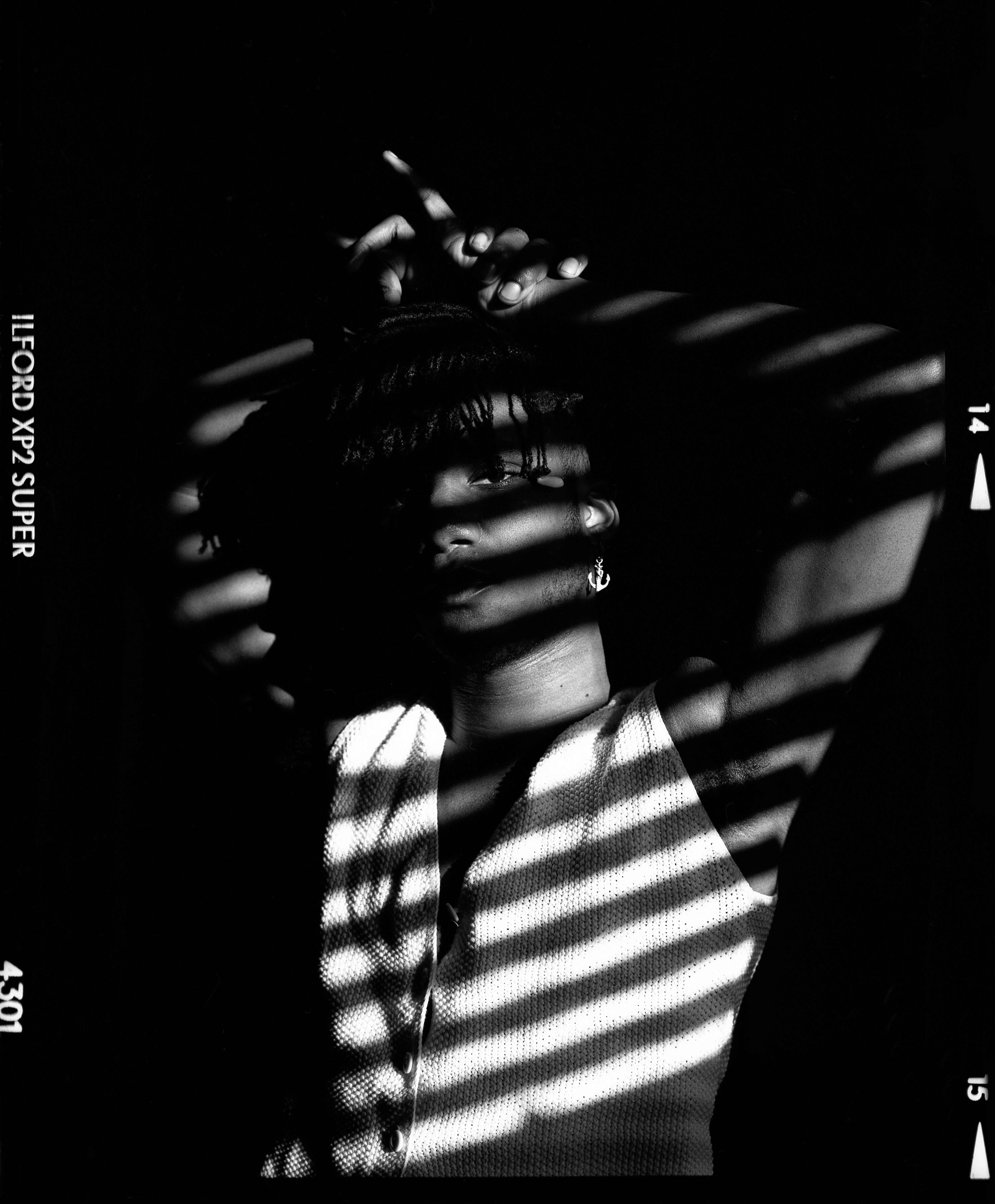
GV: Which queer musicians inspire you and in what ways?
BB: Queer musicians that I love? Janelle Monae. She was an artist that I fell in love with. She showed me what production could be. She’s a true world builder. I hope to bring my own worlds to scale in the ways that she has. Dj Fatha Julz. I think being in the ballroom scene and coming in contact with Fatha Julz’s music was monumental for me. I heard someone that was obviously inspired by all of the things that I loved, and he had already taken that to the next level, and he did it fearlessly, still holding on to his authenticity. Aly Us—I’m not exactly sure if they’re queer as a collective, but their music definitely is. It’s an entire celebration of life and her fruit—their sounds have brought me closer to euphoria than I’ve ever been. Grace Jones, because she is fucking MOTHA—fearless, a staple, a career. Jay Boogie is definitely my contemporary legend of choice. She’s an artist I have the pleasure of knowing intimately and it is my intimate knowing of her that makes her a fave. The dedication to self-definition is just sickening to me.
I feel like there’s so many I’m leaving out—I’m sure so many of my faves are queer—the way this world squelches us; leaving us unable to give voice to our love and desire—I mean Luther being an example. I’m reclaiming—retracing queer ancestry all the time.
